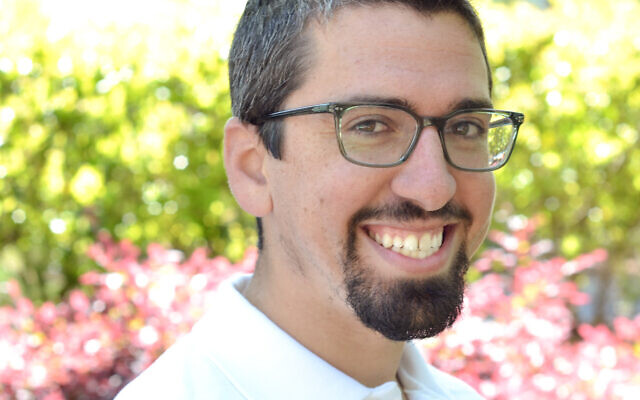Rosh Hashanah Message: Rabbi Nachi Friedman
Rabbi Nachi Friedman shares his thoughts and inspiration for the Jewish New Year.
Comedian Brian Regen joked: “If you get in an elevator anywhere else in the world, people walk in and press ‘lobby.’ You get in an elevator in New York City, people walk in and press lobby, door close, door close, door close, door close, door close, door close.” While funny (and true), this illustrates a psychological concept called “Placebo Buttons.” Placebo buttons are actions we do (or buttons we press) that have no impact or effect on our lives. Yet, we all do it! Placebo buttons provide us with an illusion of control. In fact, per the Americans with Disabilities Act (1990), elevator doors MUST remain open for at least three seconds.
This means that any elevator installed in the last 33 years has included a button that is utterly useless. It’s not that it doesn’t work, it CANNOT work per law. Yet, when we are in a rush and taking an elevator, we all press the door close button with passion, frustration and with prayer that the button will miraculously work and hasten the elevator doors. We join together many times during the High Holiday season. I nervously and respectfully would like to ask the following difficult question; are our prayers placebo buttons? Do they accomplish anything?
Are we just routinely coming to Synagogue and reading our prayer book like a person getting on an elevator unconsciously pressing the door close button? What does MY prayer today actually accomplish? Will it make an impact on my life or is everything already predetermined, and I am merely experiencing the illusion of control?…….. Talmud Rosh Hashana 8a wonders this exact question by highlighting contradicting statements: We are taught that every year we are judged for the following year (Devarim 11:12). Yet our Sages also teach us that man is judged every day.
This highlights the idea of repentance and the ability to change. How do we make sense of these conflicting statements to understand when we are actually judged? Rav Simcha Zissel writes that on Rosh Hashana AND every day of the year we are individually judged. Not only that, but when we are judged, we should be worried and nervous about judgment. However, on Rosh Hashana we pray as a Tzibbur (community). When uniting and joining together in prayer we unlock unique merits and levels of mercy with G-d so we can be inscribed for a sweet new year.
In fact, Rabeinu Nissim writes on Rosh Hashana, we were forgiven for one of the worst sins in Jewish history, the sin of the golden calf. From that day on, Rosh Hashana became a day dedicated towards G-d’s forgiveness and is the day we can achieve forgiveness. All prayers, especially communal prayer guarantee mercy.
This is why we can confidently celebrate the holiday with meat and wine. Our prayers today are not placebo buttons. We spend our day uniting with each other and tapping into a level of holiness and strength that we could not achieve on our own or any other day of the year. We are working together to pave the way for a blessed year. This year when we pray let us unlock our potential and be all that we could be. This year when we hear the shofar’s blast we can imagine pressing a button that works!
Rabbi Nachi Friedman is the Rabbi at Anshi Sfard in Morningside/Virginia Highland and therapist at JF&CS.




comments